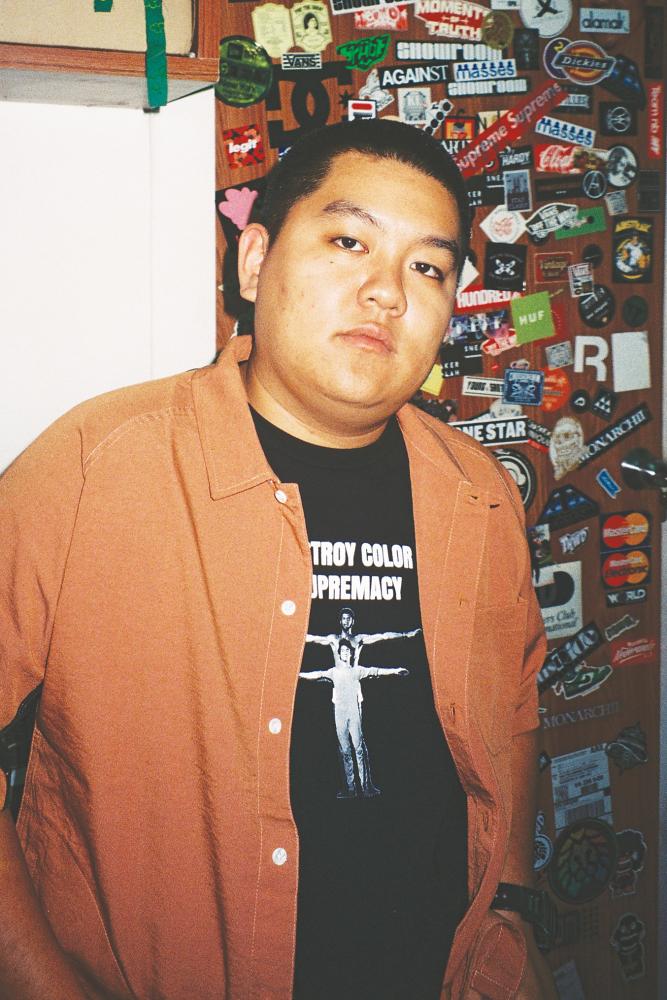CAUGHT in the cultural currents of streetwear between clothing making and image making is the narrative streetwear label Against Lab, as it strives to examine pivotal themes of both social and political values while emphasising on the freedom of creative expression.
Guided by the past, present and future, the brand reinforces the importance of storytelling and context in every consecutive collection release.
Like the time when they were discovering paradise to fulfil the insatiable satisfaction in its “What is Paradise?” collection; or when they decided to draw parallels between the local “feng tao” (rave culture) and Taoism in its “Feng Taoist Retreat” collection; or most recently the “Unpromised” collection explores the promises in life.
Founder of Against Lab, Shawn Tan’s vision is pragmatic but not unconventional, and so is his way of dressing that intertwines with his side hobby as a DJ, mixing music through appropriation, de- and recontextualisation, creation through amalgamation - a technique unconsciously practised by many and has outlasted streetwear culture or that of the fashion milieu itself.
He shares: “We’re against the normative ideas that many streetwear brands at the time and still, doing the same thing. At one point everything that was produced was very repetitive, it’s always the typical black-and-white graphic t-shirts. Hence, the word ‘against’ presents a rebellious and disruptive manner towards how we breathe and live through streetwear.”
Finally, we’re talking about t-shirts - effortless pieces of clothing in which many high street and high fashion brands have provided endless variables that remain self-evidently neutral on the democratic spectrum of fashion style, at least from mass consumers’ perspective: a t-shirt is a t-shirt.
However, many of these brands are dismissive of taste, ruling homogeneity over true originality, and end up creating bland archetypal t-shirts without the rigorous thought process.
Tan explains: “Originality is increasingly harder to define and fulfil, but to remain authentic is absolutely crucial to me. It’s easy to observe and learn, but harder to adapt in individualistic ways that could set yourself different from the others, it takes extra effort to reinterpret.
“Getting inspired by a t-shirt to design a t-shirt is a huge mistake and so inappropriate, why not draw inspiration from elsewhere like a painting instead to make a t-shirt?”
Unfortunately, it has become the way streetwear today is conceived, consumed and communicated that made it so enticing for 21st-century youth culture to jump on the bandwagon, steering its direction towards monetary gain, but without necessary values that are worthwhile.
Streetwear entering the postmodernist stage is no longer unprecedented and has become an absolute best friend to capitalism, where everything goes and anything sells, but what is the point?
Well, if it is bad for creativity, it sure is good for business. Such instances or phenomenon was argued by French cultural theorist Jean Baudrillard, who wrote in his 1981 philosophical treatise Simulacra and Simulation: “We live in a world where there is more and more information, and less and less meaning.”
In other words, creations without context are counter-intuitive because information (inspiration) creates communication, but repetitious information (inspiration) devours itself and creates no meaning and a loss of communication exacerbating itself in a circular process.
Multidisciplinary collective and fashion labels such as Against Lab calls for a susceptible culture that impedes on individuality and authenticity, while challenging the perspective of streetwear that has become increasingly hard to define among the community.
Particularly when slang or adage like ‘do it for the culture’ is being thrown around so casually in recent time, I asked: “How do you do it for the culture? And what is the culture doing for you and for us?”
He answers: “The word ‘culture’ has been abused by individuals who have absolutely no context of what it means or measure, somehow their efforts by establishing a streetwear brand are a means to promote the culture.
“Nevertheless, streetwear cannot exist without a community, one’s individualism and as cliche as it sounds, the culture.”
But today, the culture demands culture vultures to feed into knowledge and understand the intricacies of streetwear identity and history isn’t loosely based on aesthetics and street attitude, hence they must be held accountable for transgression than cashing in on the culture.














